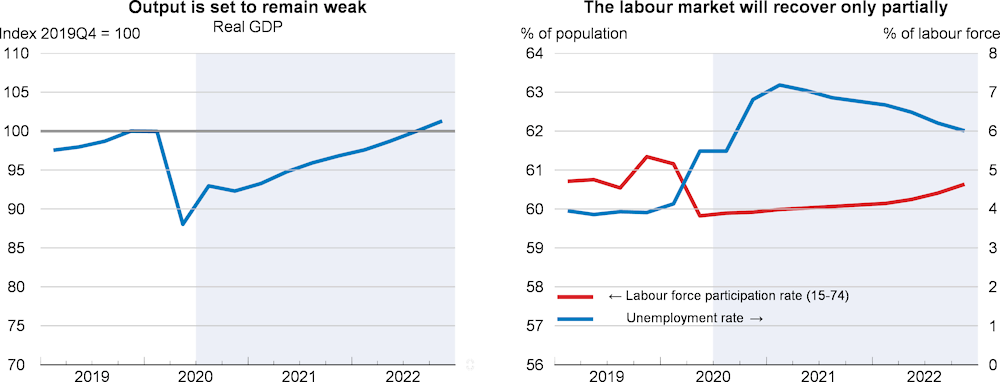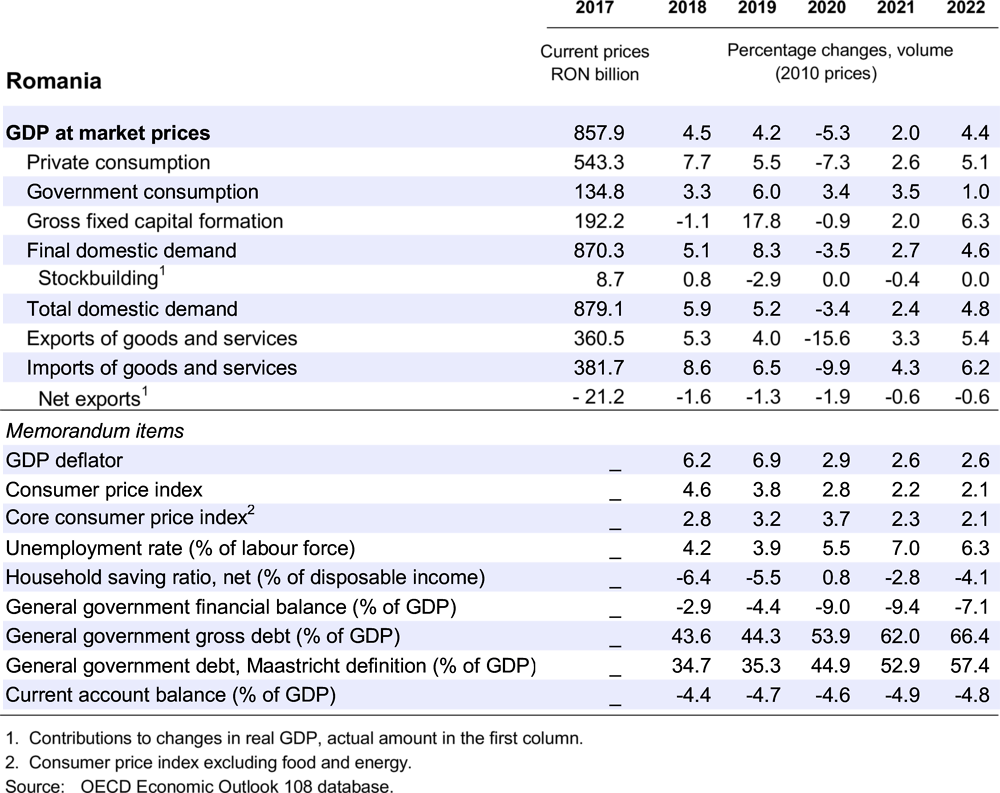After a 5.3% decline in 2020, GDP is projected to grow by 2% in 2021 and 4.4% in 2022. The pandemic will have long-lasting negative effects on the economy. Until an effective vaccine is widely deployed in the latter half of 2021, sporadic virus outbreaks and related containment measures will weaken trade prospects and continue to hit activity in the most affected sectors, such as transport and hospitality. EU programmes will sustain investment and help to contain increases in unemployment, but the deterioration of labour market conditions and a likely surge in bankruptcies in 2021 will hamper the recovery.
Fiscal policy needs to remain accommodative, but the composition of public spending has to be reviewed. Recent changes to the pension system should be reconsidered since they limit fiscal space for measures needed to accelerate the recovery and undermine the sustainability of public finances. Supporting investment in digital technologies in both the private and public sectors is a priority to improve the resilience of the economy against future COVID-19 shocks. Spending on education, health and social protection should increase to counter rising risks of poverty and social exclusion. Accelerating the absorption of EU funds for greener growth is a priority.


